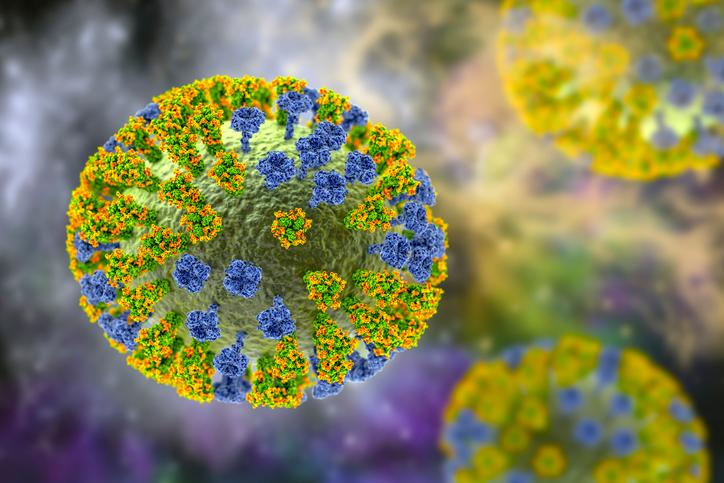
Surge in cases 5 weeks ahead of usual start to flu season
Practice Nurse 2025;55(6): online only
The flu season has hit the NHS more than a month earlier than usual, with cases three times higher than this time last year.
The UK Health Security Agency’s (UKHSA’s) latest surveillance data (31 October 2025) shows cases have increased this week from 6.1% up to 8.2% – largely driven by a spike among school-aged children – and is up from 2.9% this time last year.
The early start to flu season follows warning signs from the Asia-Pacific region, where Japan has already declared a flu epidemic, with many schools needing to close.
The rise in cases comes despite news that 12.2 million flu vaccines have been delivered so far this autumn (12,219,568).
To date, more than 6.7 million flu vaccines have been delivered to over-65s (6,770,248), 1.8 million to school-aged children and over 366,000 to 2- and 3-year-olds.
This year, annual flu vaccinations were only available from 1 October for the majority of patients, but general practices are expected to vaccinate all eligible adults by the end of November.
This early increase has prompted concerns that flu will spread to the wider population in the coming weeks and trigger a ‘long and drawn-out flu season’.
Duncan Burton, Chief Nursing Officer for England, said: ‘This early rise of flu in children is particularly concerning – especially given that flu circulation in children normally precedes that in adults – so it’s vitally important those eligible come forward for their vaccine as soon as possible to avoid a long and drawn-out flu season.’
Dr Alex Allen, Consultant Epidemiologist at UKHSA, commented: ‘We’re seeing an unusually early start to the flu season this year, with the latest data showing a sharp increase among children but also increases in other age groups, with the virus now starting to spread more widely in the community.’
Rory Deighton, acute and community care director at the NHS Confederation, said: ‘The flu season arriving early this year is deeply worrying given the signs were already pointing to another difficult winter. The NHS has already had a very busy summer and has been running hot coming into the winter months, so this will pile yet more pressure on already squeezed services.
‘NHS leaders have been stepping up preparations for winter, but they are concerned that the spike in seasonal viruses, coupled with staff sickness levels, could also be compounded by forthcoming industrial action – with resident doctors planning five days of strikes in November.’
Related news
View all News